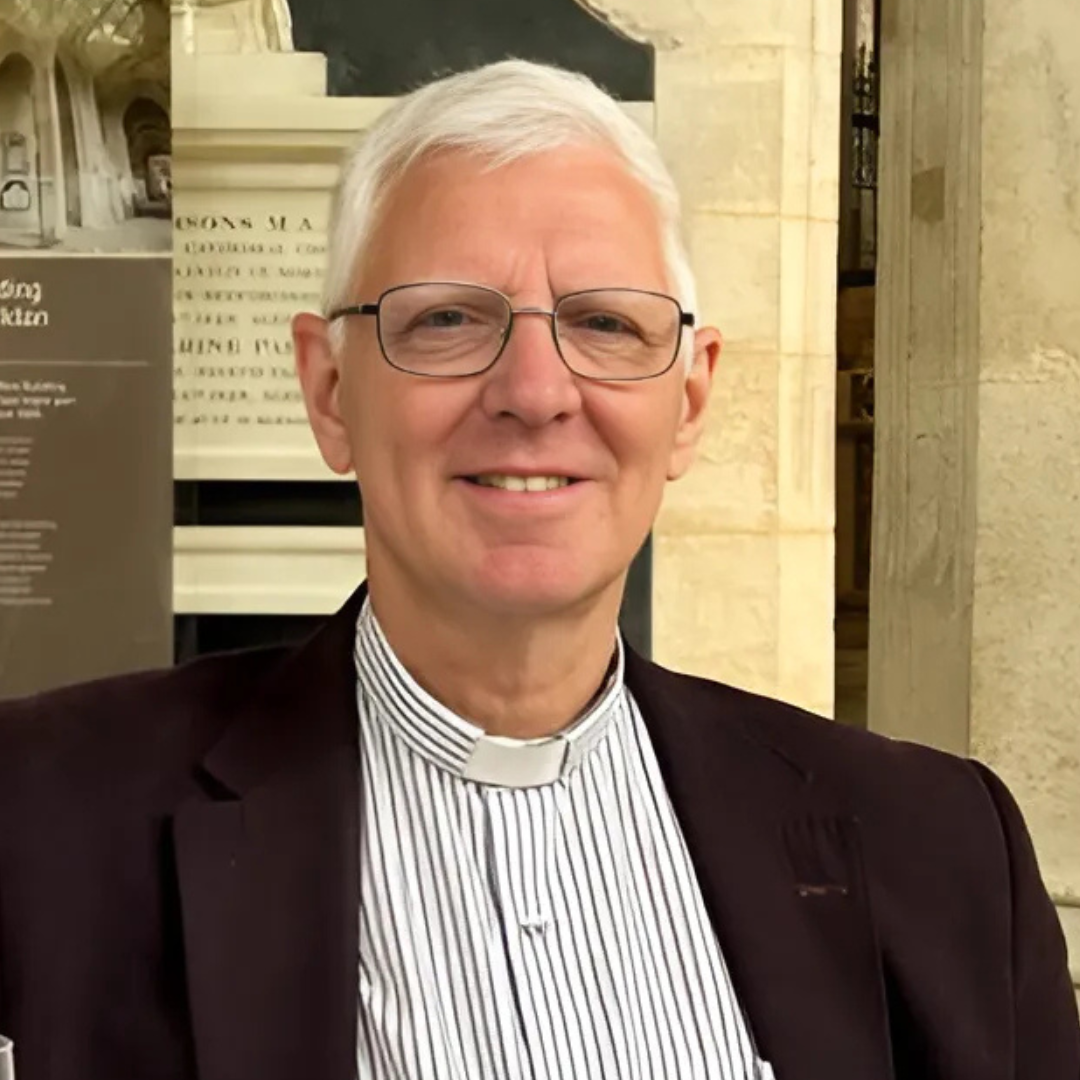Stipendiary ministry NEEDS PERSONAL REFLECTION
This means that you are offering to serve full-time, for which you will be paid by the diocese and provided with a home within the parish. Initially you will be a curate for about 3 years which is a time to complete your initial training ‘on the job’. After that, most people go on to be vicars or priests-in-charge of parishes. Every parish offers differing opportunities and challenges according to the kind of place it is. There is huge variety during the course of a ministry. Some people serve in Chaplaincy settings – for example hospitals, schools, prisons, armed forces and whilst a curacy might enable you to explore this to some extent, it is after curacy you can really consider doing this as the sole focus of ministry.
Self-Supporting ministry (SSM) & Ministers in secular employment (MSE) NEEDS PERSONAL REFLECTION
This means that you are offering to serve without seeking remuneration, or being required to move home. SSMs offer anything between a Sunday and one evening a week through to Sunday and 3 or 4 days a week. It will be important to begin to weigh up what you can offer at an early stage of the exploration. It is unlikely that the parish you are asked to serve is the one you have come from, but it is not usually too far away from home, usually no more than 10 miles. Some people feel that their place of work is more than simply a place where they like to be known as a Christian, but that it is a place in which to focus ordained ministry. MSEs are usually self-supporting ministers, linked to parishes but seeing their workplace as a main arena of ministry.
Pioneer ministry NEEDS PERSONAL REFLECTION
Some people feel a particular call to pioneer “new forms of church for our changing culture, established primarily for the benefit of people who are not yet members of any church.” These are commonly known as fresh expressions of church. Whilst all ministry is concerned with seeing the church grow, for some people there is a distinct calling to venture into particularly unreached areas or groups of people, plant the gospel and grow a church. See www.freshexpressions.org.uk for more information.
Distinctive diaconate NEEDS PERSONAL REFLECTION
All ordained ministers are initially ordained deacon, and then during their curacy ordained as priests. Some people feel called to remain as deacons, and will have been through selection knowing this already. This is more likely to be a self-supporting ministry, but not always. Ministry as a deacon is a ministry of service within the community, and of assistance to their ordained priest colleague. Sometimes distinctive deacons will say that they see themselves at the doorway of the church more than at the altar or in the pulpit.
Church Army NEEDS PERSONAL REFLECTION
“Sharing faith through words and action”, Church Army is about “communicating the unchanging message of an unchanging God to a fast-changing culture”. It is an order of Lay Evangelists, with selection procedures and criteria very similar to those for ordained ministry, and so exploration of a calling to Church Army is handled by the Diocesan Director of Ordinands. Some Church Army evangelists are in diocesan posts, others are employed in parish-paid posts, and others raise their own funding, rather like an overseas mission partner does. Sometimes Church Army Evangelists will say that they see themselves working outside the church to bring people in, rather than working within the church to send people out. See www.churcharmy.org.uk for more information.
Reader in parishNEEDS PERSONAL REFLECTION
Authorised Lay Minister in parish NEEDS PERSONAL REFLECTION
Hospital Chaplaincy - The Revd Evie McNally
 |
When I tell people I’m a hospital chaplain, they often reply with complimentary words of encouragement and respect…‘that must be very challenging, but a very valuable and needed role!’ Of course, they are right; in a lot of ways the role is challenging and at times distressing, but it is also a role which blesses deeply and offers hope beyond the circumstances people are facing.
On the wards chaplains with a Christian faith background are being called by God to search for the poor and weak, the sick and lonely; those who are oppressed by illness and frailty, feeling powerless and sometimes facing death itself. On the wards, chaplains are being called to reach into the forgotten corners of the world, so that the love of God may be made visible . It is a powerful ministry where the chaplain is called to serve at walking pace, being led by God ‘in the moment’, and open to the guidance of the Holy Spirit. Chaplaincy requires the kind of presence that is willing to be interrupted – always available and attentive to the needs of the person before us, and chaplains are privileged to be given opportunities which enable us to embody this sense of being fully present. On the wards is where God’s mission to bring healing and wholeness to our broken world is revealed and addressed. So, if I were to sum up my role as a chaplain in just a few words, I would describe chaplaincy as a ministry of presence.
As NHS chaplains we serve the hospital and those who work and receive care there in various ways. Following the loss of a baby, we meet with bereaved parents, offer services of naming and blessing, funerals, and twice-yearly Baby Loss Memorial services. We visit patients on wards, offering Holy Communion, prayer, or a passage from scripture. We offer a listening ear to patients and staff in distress and are involved in major incidents and trauma response, as well as undertaking staff training. We plan and lead corporate memorial services and offer opportunities for the hospital to mark major faith events and festivals, such as Ramadan, Diwali, Hanukkah, Christmas, and Easter, and civic memorials, such as Remembrance. For me, one of the most privileged areas of a chaplain’s work is enabling patients and families who are facing death to receive end of life prayer and support. Chaplains point to God’s presence alongside us, offering hope in the face of uncertainty or pain.
While remaining authentic and true to our own faith tradition or belief, we are called to minister to people from all faiths and world views. The diverse nature of the need we encounter and the work we do is a real blessing, where God’s grace is both encountered and experienced. I have discovered that it is possible to hold these tensions together with the grace God has given us. I am privileged to work with and alongside a wonderful and diverse team of chaplains from different faith backgrounds who not only support the hospital but also one another. Reflecting together as a team is both vital for our own learning, as we seek to deliver excellence in our care, but also for our own well-being as ministers. We do not journey alone!
Prison Chaplaincy - The Revd Tony Lynett
 |
You might be wondering what God has in store for you next in ministry. Maybe you’re being drawn to something completely different, or maybe you’ve just been signed off and are exploring all the ministry opportunities in God’s church.
One area of ministry that often gets overlooked is Prison Chaplaincy. But yet it can be one of the most exciting and rewarding experiences open to the Christian minister.
Prison Chaplains stand alongside those in custody, often at their lowest point, with a message of hope and forgiveness. And it’s both humbling and moving to watch individuals respond and embrace the Gospel and find new direction and new purpose.
There are many opportunities, such as Bible Classes, Sunday and weekday services, as well as one-to-one study and prayer. Seeing men received into the prison and those discharged every day, those who make applications to be seen, those segregated either as punishment or for their own protection, as well as those who present as suicidal or are self-harming, demands all the skills of ministry that can be mustered, along with the grace of the Holy Spirit.
It can be very demanding, but it’s a very real, grounded ministry that is hugely rewarding.
Chaplains are also there for all the staff. Sometimes the Officers in a Prison will need support in handling extremely difficult situations; we need to be there for them. Many Chaplains have been blessed by conducting weddings and baptisms and sadly sometimes funerals of those they have worked alongside and have been privileged to get to know through pastoral encounters.
Prison Chaplaincies are multifaith teams, and colleagues can be Muslim, Sikh, Hindu, Pagan, and others too, as well as Christian. One often discovers that those of different faiths are also on the side of the angels. And it can be such a stimulating and strengthening environment in which to work as one learns to respect the faith and spirituality of others, whilst becoming more sure of the rock upon which the Church of Christ is built, as one’s own faith is honed and deepened.
There is a whole host of ministers who can become Prison Chaplains. Often adverts include Ordained Priests and Deacons as well as Readers, Accredited Lay Ministers, and Volunteer Chaplains.
There is an excellent training programme for those who want to pursue this possibility, and here in this Diocese we have The Revd Canon Helen Dearnley who is the Assistant Chaplain General of Prisons and a mine of information about Prison Chaplaincy.
There is so much more that could be said, but perhaps the most important is:
Don’t forget those in prison and their families. You will remember in the Gospel, Jesus identifies himself with prisoners when he says “I was in prison and you visited me”. He didn’t specify whether they were innocent or guilty; he simply asked us not to forget them.